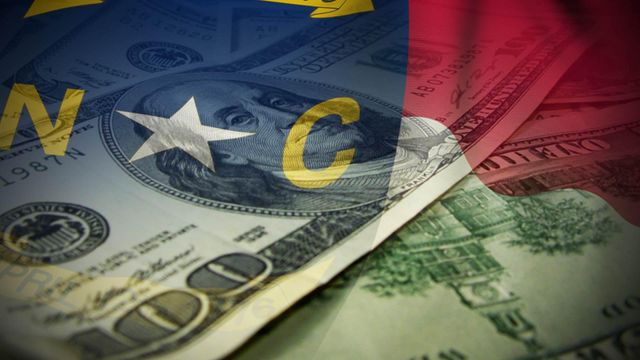Tax increases, furloughs on lawmakers' table
The specter of tax increases and furloughs of state employees is growing in the Legislative Building as state lawmakers try to tackle a growing budget deficit and declining revenue.
Posted — Updated"We all agree (we've) got to look at everything. We've got to figure out how to make this (budget) work," said Sen. A.B. Swindell, D-Nash, co-chairman of the Senate Appropriations Committee. "This is uncharted territory. We've never been here before."
The latest projections call for the state budget deficit to grow to $2.2 billion by June and easily top $3 billion in the 2009-10 fiscal year.
State Controller David McCoy said Monday that state revenues fell 14.3 percent in January from a year ago, including a 21.4 percent drop in personal income tax collections. State spending was down 1.7 percent overall in January, although spending on education and health and human services was up 5.9 percent, he said.
Gov. Bev Perdue on Wednesday ordered state agencies to cut spending by 9 percent during the 2008-09 fiscal year, which ends June 30. The size of the required cuts has grown steadily since former Gov. Mike Easley called for 2 percent reductions in September.
Perdue had been counting on money from the massive federal economic stimulus package to plug holes in the budget, but she said other actions are needed because North Carolina's $6.1 billion share of the stimulus – most of it is earmarked for infrastructure projects – won't be available to cover the deficit.
Before the General Assembly convened last month, lawmakers began discussing raising taxes on alcohol and cigarettes and closing some corporate tax loopholes to erase part of the deficit. One loophole exposed in a recent WRAL News investigation allows Lowe's Cos. to forgo collecting sales tax on items installed by the retailer's contractors.
Human services advocacy groups have started pushing lawmakers to expand that focus and to consider raising personal income tax rates and the state sales tax to avoid cuts that would devastate their programs.
"Even if we cut agencies across the board by 10 percent, use all stimulus money available and totally raid the rainy day fund, we're still going to have a $1 billion shortfall, most likely, for next fiscal year. So, cuts alone aren't going to do it," said Rob Thompson, executive director of Covenant with North Carolina's Children.
"There's some things we're considering right now," Thompson said. "One would be closing corporate tax loopholes that really benefit multistate corporations at the expense of small business. Another would be broadening the base on personal income taxes (and) broadening the base on the sales tax to (include) services."
Lawmakers said tax increases are the last resort and would only be added to the mix if enough cuts couldn't be made to balance the budget.
"We aren't ready to talk about new revenues. We're just starting on the budget process," House Speaker Joe Hackney said.
"Our people don't have the money to pay more taxes. This is not a year to raise tax rates," said Rep. Paul Stam, R-Wake.
Among the cuts under consideration are closing some state prisons and challenging all nonprofits that receive state funding to justify their appropriations.
With private-sector companies cutting people to stay afloat, legislators conceded state jobs also will come under scrutiny. Forcing state workers to take time off without pay could get a closer look, Hackney said.
"The state of Georgia furloughed 25,000 employees, and you have to wonder whether that's not what it's going to come to here in some number," he said.
Thirty-eight of the 46 states with budget deficits this year have proposed or implemented reductions to their work forces, including nine that have furloughed workers
North Carolina has never furloughed state workers, and lawmakers said doing so would likely require a change in state law.
"They would probably rather be furloughed than laid off, than unemployed," said Rep. Ty Harrell, D-Wake. "I think we have to look at every single option that's out there, no matter how painful it is right now."
• Credits
Copyright 2024 by Capitol Broadcasting Company. All rights reserved. This material may not be published, broadcast, rewritten or redistributed.






